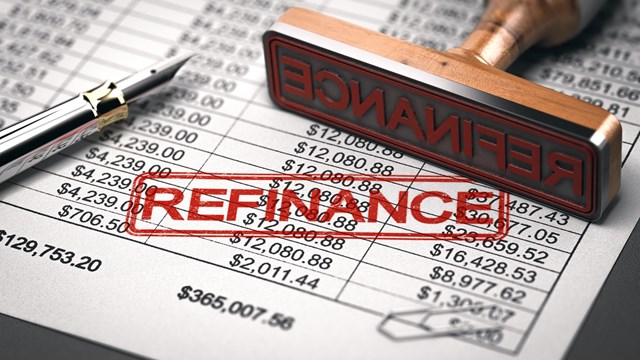Many expenses, small and large, are involved in the process of managing a residential building. A majority of these are unavoidable, such as mortgage payments in the case of a co-op, utility costs and payroll; however, when large sums of money are being dealt with, it is easy for unnecessary expenses to slip by unnoticed. As a means of protecting both a building’s budget and the quality of life for its residents, boards have a responsibility to keep costs as low as possible, without making choices that will sacrifice services that residents rely on. Fortunately, it is possible to reduce costs significantly by implementing a well-thought-out system for monitoring expenses and securing the cheapest, high-quality goods and services available.
Effective Budget Reviews
To avoid superfluous expenses, it is crucial that a board clearly draws out a plan for reviewing the building’s budget. Patrick Niland, president of First Funding, a commercial mortgage brokerage firm in Manhattan, recommends treasurers of co-op boards, "sit down once a month with the managing agent and go over every expense; it doesn’t matter how small. Look at every expense and ask if you need to spend that money. If the lobby floor is waxed once a week, could it be done every other week?"
In addition, Niland recommends that boards work closely with the managing agent, making it clear to the agent that saving money is a priority. "Boards not focused on what’s going on in their buildings are giving too much authority to the managing agent. Most agents are honest and hardworking, but it’s still a dangerous situation when a board does not monitor the managing agent’s expenses. Agents might be tempted to take kick-backs that are offered to them under these circumstances. Or, more likely, they will get lazy and won’t look for the best deals, because no one is sending them the message that they are interested in saving money."
Marc Taub, a partner at Ellenbogen Rubenstein Eisdorfer & Co., an accounting firm in Manhattan, says that, during budget reviews, boards should develop a clear understanding of "the difference between their controllable and uncontrollable expenses." Between 60 and 70 percent of most buildings’ budgets are made up of uncontrollable expenses. It is by examining the controllable, expenses that buildings can make budget cuts. But, while it is important to think critically about their expenses, boards should not make budget cuts that will compromise the building’s services. "Buildings should not eliminate costs if it will have a big impact on the building’s services; they need to be considerate of the fact that people live there and that it is their home," says Taub.
Develop a Team Of Financial Advisors
It is important that boards develop a close, communicative relationship with their financial advisors. Niland says he has, "seen co-ops fritter away thousands upon thousands upon thousands of dollars by stalling their decisions and second-guessing everything. If the market moves away from them and interest rates go up by half a point on a three million-dollar loan, it really adds up. It’s important for board members to know what they can do and what they can’t do. They need to trust their team. They should establish a close relationship with their financing team, so that they feel comfortable moving quickly when it’s time to move into the marketplace."
It is important to choose one member of the board to be the primary liaison between the building and the financial institutions it works with. This will strengthen the relationship with the financial advisors, and prevent confusion. "I don’t want five different board members calling to ask me different questions–or calling to ask me the same question. This will only increase their fees," says Taub.
Using the Talents of In-House Staff
Boards should not overlook the role that the superintendent and maintenance staff can play in keeping costs under control. These staff members, who are familiar with the "ins-and-outs" of the building, may be able to suggest preventive repairs that will save money over the long haul, and they may have special skills that can be used to avoid hiring expensive outside contractors.
Niland suggests that someone on the board meet with the superintendent once a week to discuss the building’s condition. He says, "A super might see a leak and not remember to take care of it for awhile. But by having the super take a board member through the building every week, issues like these get addressed earlier, which will save the building money."
Buildings may also split their savings with in-house staff; if staff members come up with ideas that save the building money, they will be financially rewarded for their contributions. This encourages them to always think of cheaper ways of addressing the building’s maintenance needs.
In addition to offering monetary incentives, buildings can develop a staff concerned with saving money by simply acknowledging employees’ contributions. Steven Greenbaum, president of Mark Greenberg Real Estate Co. in Manhattan says, "Compliment your staff. Thank them: do it publicly and do it privately. Give them the opportunity to take pride in their work."
Greenbaum says that boards and agents should also, "Find out what special skills the building staff has. They might have a special knowledge of painting, plumbing or landscaping. Let them show their talents." Greenbaum continues, "And always ask your staff how they’d like to tackle any job that comes along. They want to show us what they can do, to feel like they’re part of a team. The last thing I like to hear from a super is ‘I could’ve done that,’ after we’ve hired a contractor to do something."
Utilize the Bidding Process
Boards should regularly review their contractors and should develop a clear-cut bidding process that will be used when it is time to hire a new contractor for a project in the building.
To ensure that they are getting fair, competitive pricing, buildings should try to get contractor recommendations from as many different sources as possible. Board members, managing agents, attorneys and architects should all be consulted to see if they know of anyone who could do the job.
It is also important to remember that, if consulted, contractors might be able to offer money-saving suggestions. According to Niland, "Boards often get bids but they don’t go to the next step, investigating how the job could be done differently. Many co-ops have antagonistic relationships with contractors, but contractors appreciate being consulted. If they’re not asked if things could be done better, they don’t tell you. As part of the bidding process, get them involved in the project."
Boards should also review their supply contracts on an annual basis to make sure that they are getting the best prices. A vendor that offers a good price for one item will not necessarily offer the best price for another. Boards can reduce supply costs by taking the time to choose their suppliers item by item. They should also periodically check with their managing agents to make sure that they are taking full advantage of all bulk-rate discounts the agent has access to.
Buildings should also look at advertisements and flyers to make sure that they are getting competitive prices. Greenbaum says, "The last thing you want to hear is that you spent $12 on a broom your board president saw advertised for $6. And when a super calls and asks for something, you should always ask ‘How much?’ If you ask, you know you won’t get the most expensive broom, you’ll get a good quality broom."
Improvements Equal Investments
In many buildings, particularly older ones, improvements to utility systems can be a cost-effective investment. By taking advantage of the newest, most effective technology, buildings can often drastically lower their utility bills.
According to Michael J. Wolfe, president of Midboro Management in Manhattan, "New windows help reduce heating costs and make the building more attractive. Today’s new boilers are vastly more fuel-efficient and use less electricity for igniting the system. The installation of a state-of-the-art heat timer for a building’s boiler can also save money by regulating the distribution of heat throughout the building. Changing from DC to AC current for use in older elevators will save the building utility company surcharges."
Buildings can potentially save money by switching from oil to gas. Also, boards can rest assured that they are keeping their heating bills to a minimum by pre-paying their oil or gas bills at a fixed rate before the winter heating season begins. By making these improvements to the building, boards are making an investment that will save the building a great deal of money over the years to come.
Boards should review their budgets pragmatically, taking the time to thoughtfully consider every expense. But perhaps the most important thing a board can do is to make sure that everyone involved in the building’s operations is consulted about ways that costs could be cut. People who deal with the various aspects of the building’s operations can offer a wide range of perspectives on ways that the building could be run more cheaply and efficiently. When reviewing the budget, board members should attempt to make everyone feel invested in the goal of keeping the budget low. And getting everyone involved in the process might even have an additional benefit–making the building a friendlier place to work and live.
Ms. Baker is a freelance writer living in Brooklyn.







Leave a Comment